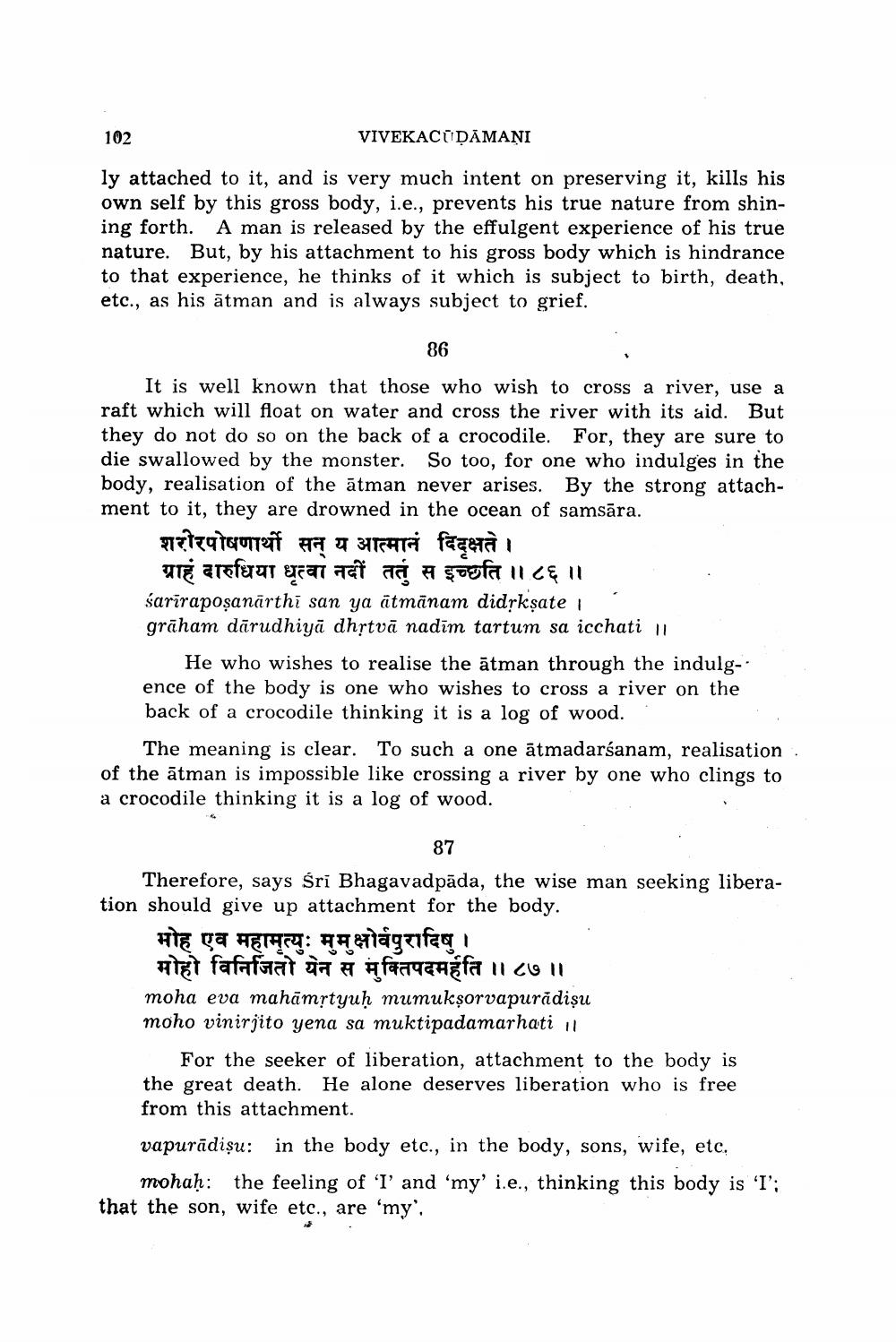________________
102
VIVEKACUDAMAŅI
ly attached to it, and is very much intent on preserving it, kills his own self by this gross body, i.e., prevents his true nature from shining forth. A man is released by the effulgent experience of his true nature. But, by his attachment to his gross body which is hindrance to that experience, he thinks of it which is subject to birth, death, etc., as his ātman and is always subject to grief.
86
It is well known that those who wish to cross a river, use a raft which will float on water and cross the river with its aid. But they do not do so on the back of a crocodile. For, they are sure to die swallowed by the monster. So too, for one who indulges in the body, realisation of the ātman never arises. By the strong attachment to it, they are drowned in the ocean of samsāra.
शरीरपोषणार्थो सन् य आत्मानं दिदक्षते। ग्राहं दारुधिया धृत्वा नदी तर्नु स इच्छति ॥८६॥
. śarīrapoşanarthi san ya ātmānam did;ksatei grāham dārudhiyā dhṛtvā nadīm tartum sa icchati 11
He who wishes to realise the ātman through the indulgence of the body is one who wishes to cross a river on the back of a crocodile thinking it is a log of wood.
The meaning is clear. To such a one ātmadarśanam, realisation of the ātman is impossible like crossing a river by one who clings to a crocodile thinking it is a log of wood.
87
Therefore, says Sri Bhagavadpāda, the wise man seeking liberation should give up attachment for the body.
मोह एव महामृत्युः मुमुक्षोर्वपुरादिषु।
मोहो विनिजितो येन स मुक्तिपदमर्हति ।। ८७ ॥ moha eva mahāmrtyuh mumuksorvapurădişu moho vinirjito yena sa muktipadamarhati 11
For the seeker of liberation, attachment to the body is the great death. He alone deserves liberation who is free from this attachment. vapurādişu: in the body etc., in the body, sons, wife, etc,
mohaḥ: the feeling of 'I' and 'my' i.e., thinking this body is 'I'; that the son, wife etc., are 'my:




